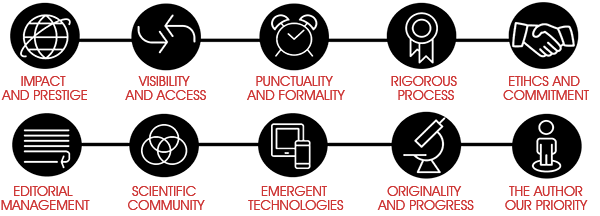Academic integrity
Choosing an effective publishing strategy
The university requires each postgraduate student to have published two to three articles usually published from their chapter two, three, or four of their thesis before making their final submission of their thesis, it also demands faculty to have published within each year of their contract tenure upon renewal of their contracts. Publishing, therefore, is a crucial aspect of that category of library users, and knowledge of credible journals and publishers is essential to have.
Publication types
Publications could be done in a variety of forms which include: books, book chapters, journal articles, conference proceedings, posters, datasets, etc. as mentioned above information about credible publishers and conference organisers is important to have. Think. Check. Submit is a tool that assists researchers as they make their choices of the right publishers.
Choosing the right book or Journal for Your Research
Quality publication criteria
Scientific publishing has in place principles and standards by which the quality of the publication is judged. Among the most important are those in the picture below: It is these standards and many more that are used by the indexing agencies to index the publishers.

Romero (2018)
Predatory publishers (What to watch out for)
Indexing agencies
Indexing agencies carry out indexation services whereby they register publishers who meet the required registration standards, and their product information. Some of the standards include: ( link to Romero image)
Examples of indexing agencies include Dimensions, Google Scholar, Scite, Web of Science, Scopus, Econ Lit etc. Uganda Martyrs University has access to the first three agencies i.e. Dimensions, Google Scholar, Scite. The university also has its journal (Journal of Science and Sustainable Development – JSSD) indexed in Dimensions by African Journals, online publisher.
| No. | Name of the citation and indexing tool | Coverage – Records |
| 1. | Dimensions | 126 Million |
| 2. | Google Scholar Journal Metrics | unknown |
| 3. | Lens.org | 247.5 Million |
| 4. | Publish or Perish | unknown |
| Subscription-based | ||
| 5. | Scite | 29 Million |
| 7. | Web of Science | 71 Million |
| 8. | Scopus | 60 Million |
| 9. | InCites | |
| 10. | SciVal | |
Citation counts and the Impact Factor
Selecting a publisher (How to select a book or journal publisher)
Maximizing the impact of research – author identifiers & visibility of research output
Open Researcher and Contributor IDentifier (ORCID IDs) are permanent identifiers that facilitate the unique identification of researchers thereby removing any possible existing ambiguities during publishing e.g. similarity in names, inconsistency in author names for the various publications, etc.
A Digital Object Identifier (DOIs) is a unique number assigned to a publication i.e. a journal article, and sometimes a book or book chapter. DOIs are provided by registration agencies (RAs) which allocate DOI name prefixes and provide the infrastructure that ensures permanent identification of the publication. DIO.org
Promoting and monitoring research outputs
Using social media for research (blogs, Twitter, social networks)
Tracking citations and mentions of works
Open access and how to use it to maximize the impact
Open access – definition
open access means free access to scholarly literature on the Internet. The most commonly invoked definition of open access comes from the Budapest Declaration (2002). Open access explained
Why open access?

How do I publish open access?

How are open access publications funded?
How are open access works licensed?
Open access and open science

Your Research Impact Health CheckList
|
✔
|
Create a Researcher Profile, with • UMU Staff Publication System • Google Scholar • ORCID |
| ✔ | Get an ORCID |
| ✔ | Use the Open Access routes for publishing ( Journal of Science and Sustainable Development, etc.) |
| ✔ | Use Research Beeline for funding alerts |
| ✔ | Promote your work (posters, papers, books, etc.) via all means (UMU IR, Staff Publication System, Blogs, Twitter, News, Policy documents, Facebook, Google+, LinkedIn, YouTube, Pinterest, Faculty1000 |
| ✔ | Find out how research in your field is evaluated |
| ✔ | Know how to use the citation and indexing tools i.e. Dimensions, Scite |
| ✔ | Set up alerts for citations to your work in Google Scholar, Scite, Dimensions etc. |
| ✔ | Help organize and/ or participate in conferences |
| ✔ | Study practice and developments in the communication of research impact |
| ✔ | Attend publisher workshops |

